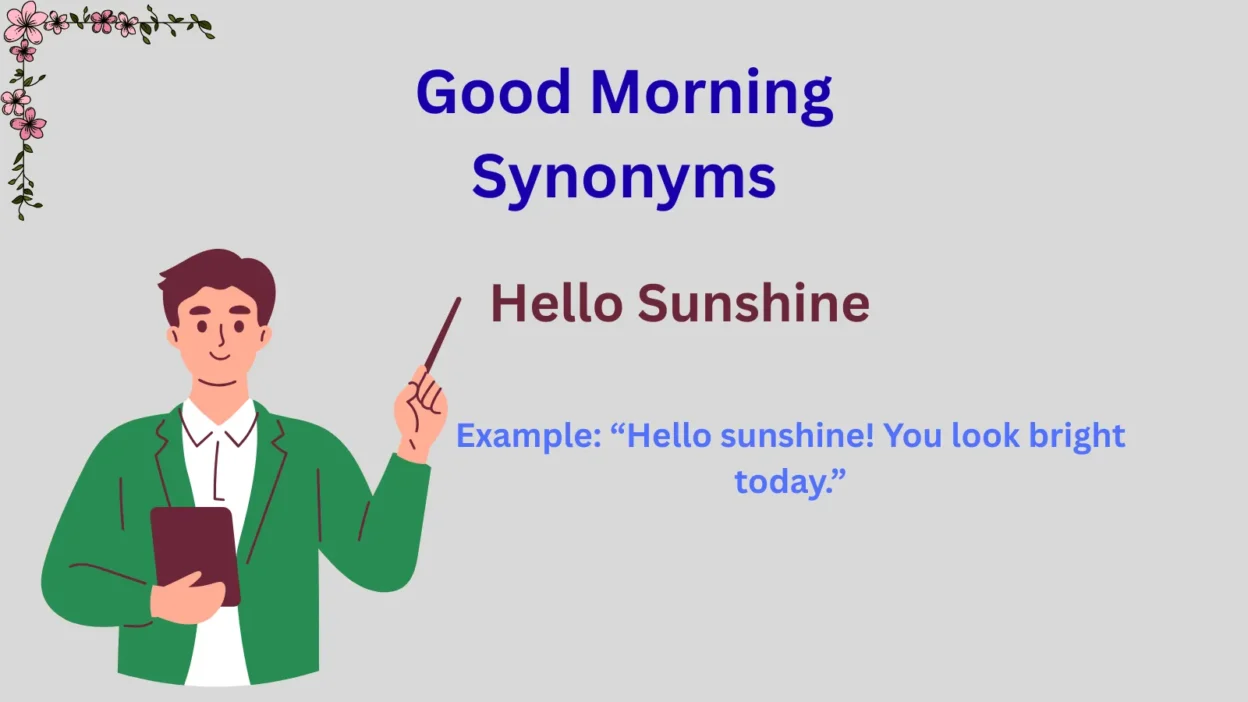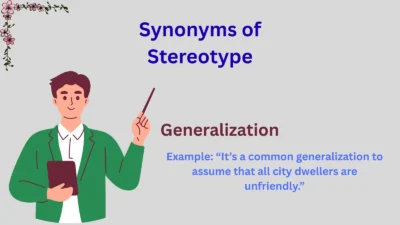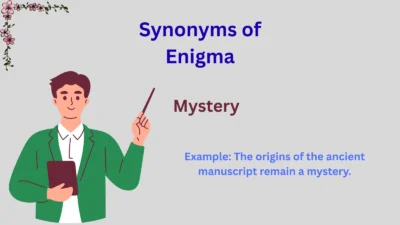Good Morning Synonyms, such as morning greetings, good daybreak, and happy morning, offer fresh ways to start the day with warmth and positivity. For example, instead of saying “good morning,” you might say “happy morning” to sound cheerful or “good daybreak” for a poetic touch.
Using the right synonym for good morning helps set the tone — polite, friendly, or uplifting — depending on who you’re speaking to. Each phrase carries its own energy, from formal to casual or creative.
If you’re writing messages, emails, or dialogues, choosing the right good morning synonym adds personality and charm to your greeting. In this guide, we’ll explore 30 alternatives, their meanings, and how to use them naturally in everyday conversation.
What Does Good Morning Mean?
Good morning is a simple greeting used to wish someone well at the start of the day. It’s more than just words — it’s a way to show kindness, positivity, and connection.
People use good morning to:
- Start conversations politely
- Express warmth or care toward others
- Create a friendly or professional tone
- Spread positive energy at the beginning of the day
It’s not only about the time of day — saying good morning sets the mood for how the rest of the day unfolds. Whether you say “morning greetings,” “happy morning,” or “good daybreak,” the goal is always the same — to bring a smile and a bright start to someone’s day.
30 Synonyms & Related Words for Good Morning
1. Morning!
Description: A casual, shortened version of “Good morning.”
Example: “Morning! Did you sleep well?”
Usage: Friendly, informal; perfect for workplaces or casual conversations.
2. Top of the Morning!
Description: A cheerful, traditional Irish greeting.
Example: “Top of the morning to you, friend!”
Usage: Light-hearted, cultural, and often playful.
3. Rise and Shine!
Description: Encouragement to get up and start the day energetically.
Example: “Rise and shine! It’s a beautiful day outside.”
Usage: Motivational, warm; great for family, kids, or partners.
4. Hello Sunshine!
Description: A charming and affectionate morning greeting.
Example: “Hello sunshine! You look bright today.”
Usage: Sweet and endearing; ideal for close friends or romantic partners.
5. Wakey-Wakey!
Description: A playful, childlike way to wake someone up.
Example: “Wakey-wakey! Breakfast is ready!”
Usage: Cute and informal; often used with kids or loved ones.
6. Bright Morning!
Description: A poetic twist emphasizing positivity.
Example: “Bright morning to everyone starting fresh today.”
Usage: Warm and uplifting; good for social media or public messages.
7. Morning Greetings!
Description: A general, polite way to acknowledge others in the morning.
Example: “Morning greetings to the team—let’s make it a productive day!”
Usage: Semi-formal; suitable for group or workplace communication.
8. Have a Great Morning!
Description: Adds encouragement to the traditional greeting.
Example: “Have a great morning and an even better day!”
Usage: Polite, positive; fits emails, messages, or meetings.
9. Good Daybreak!
Description: A literary expression for the early morning.
Example: “Good daybreak to all the early risers.”
Usage: Poetic or descriptive; works in writing or storytelling.
10. Good Dawn!
Description: Refers to the first light of morning.
Example: “Good dawn, my friend—let’s chase new beginnings.”
Usage: Artistic and spiritual; fits poetry or reflective writing.
11. Happy Morning!
Description: A cheerful alternative to “Good morning.”
Example: “Happy morning! You look ready to conquer the day.”
Usage: Optimistic, friendly; perfect for texts and greetings.
12. A Beautiful Morning to You!
Description: Emphasizes appreciation of the day’s beauty.
Example: “A beautiful morning to you—may it be full of peace.”
Usage: Warm and expressive; works in romantic or polite contexts.
13. Lovely Morning!
Description: A softer, elegant way to greet.
Example: “Lovely morning, isn’t it?”
Usage: Friendly and conversational; suitable for social settings.
14. Good Day Ahead!
Description: Encourages positivity beyond the morning.
Example: “Good day ahead! Let’s start strong.”
Usage: Motivational; fits work, messages, or leadership tone.
15. Fresh Morning!
Description: Highlights the freshness and energy of a new day.
Example: “Fresh morning air always inspires new ideas.”
Usage: Descriptive or poetic; good for captions or creative writing.
16. Joyful Morning!
Description: Conveys enthusiasm and happiness.
Example: “Joyful morning to all—keep smiling!”
Usage: Positive and expressive; perfect for motivational contexts.
17. Have a Bright Start!
Description: Encourages optimism at the beginning of the day.
Example: “Have a bright start and a productive morning!”
Usage: Warm, semi-formal; good for emails or motivational posts.
18. Peaceful Morning!
Description: Expresses calmness and serenity.
Example: “Wishing you a peaceful morning filled with quiet joy.”
Usage: Reflective; suitable for wellness, mindfulness, or spiritual writing.
19. Good Sunrise!
Description: Focuses on the beauty of early hours.
Example: “Good sunrise to those who wake with hope.”
Usage: Poetic or visual; ideal for captions and creative writing.
20. Morning Blessings!
Description: A greeting that carries spiritual warmth.
Example: “Morning blessings to you and your family.”
Usage: Religious or kind-hearted tone; fits faith-based contexts.
21. Early Greetings!
Description: A polite way to say hello early in the day.
Example: “Early greetings to all our followers!”
Usage: Semi-formal; good for social media or announcements.
22. Good Start!
Description: Focuses on beginnings and motivation.
Example: “Good start, everyone—let’s make today count.”
Usage: Workplace-friendly; motivational tone.
23. Bright Start of the Day!
Description: Highlights optimism and renewal.
Example: “A bright start of the day makes everything better.”
Usage: Encouraging, positive; good for blogs or messages.
24. Glorious Morning!
Description: Exudes grandeur and admiration for the day.
Example: “What a glorious morning to begin new dreams.”
Usage: Literary or emotional; great for poetry or romantic writing.
25. Cheerful Morning!
Description: Emphasizes joy and brightness.
Example: “Cheerful morning to you—let your smile lead the way.”
Usage: Lighthearted; good for friendly or uplifting communication.
26. Pleasant Morning!
Description: A polite, formal alternative to “Good morning.”
Example: “Wishing you a pleasant morning and smooth meetings ahead.”
Usage: Professional and courteous; fits business emails.
27. Morning Cheers!
Description: A modern, upbeat twist on a morning greeting.
Example: “Morning cheers! Let’s get the day rolling.”
Usage: Friendly and motivating; good for team communication.
28. Greetings of the Morning!
Description: Old-fashioned but warm.
Example: “Greetings of the morning to you, traveler.”
Usage: Literary, formal; adds elegance or period style.
29. Bright New Day!
Description: Welcomes the day with positivity.
Example: “It’s a bright new day—embrace the possibilities.”
Usage: Motivational and inspiring; great for morning posts.
30. Good Morrow!
Description: An archaic English phrase meaning “Good morning.”
Example: “Good morrow, my friend—how fare thee today?”
Usage: Historical or poetic; used for classic or creative writing.
How to Choose the Right “Good Morning” Synonym
Selecting the right alternative depends on tone, relationship, and context:
- Formal settings: Use Pleasant morning, Good day ahead, or Morning greetings for professional emails or workplace interactions.
- Friendly conversations: Choose Morning!, Cheerful morning!, or Bright morning! for a casual and approachable tone.
- Romantic messages: Try Hello sunshine, Beautiful morning to you, or Glorious morning for warmth and affection.
- Poetic or reflective writing: Words like Good dawn, Good morrow, or Peaceful morning add artistic or emotional depth.
- Motivational contexts: Rise and shine, Have a bright start, or Good day ahead spark inspiration and positivity.
Cultural and emotional nuance matters, too. For instance, Top of the morning conveys Irish charm, while Morning blessings carries spiritual undertones. Choosing the right version personalizes your message and connects it with the receiver’s mood or context.
Conclusion :
Exploring Good Morning Synonyms helps you greet others with freshness, warmth, and creativity. Phrases like bright new day and morning cheers add variety and personality — bright new day captures optimism and renewal, while morning cheers spreads joy and friendly energy.
Using the right synonym allows you to match your tone to the situation, whether formal, casual, or heartfelt. These alternatives make your greetings more engaging, helping you start every day — and every conversation — on a positive note.



